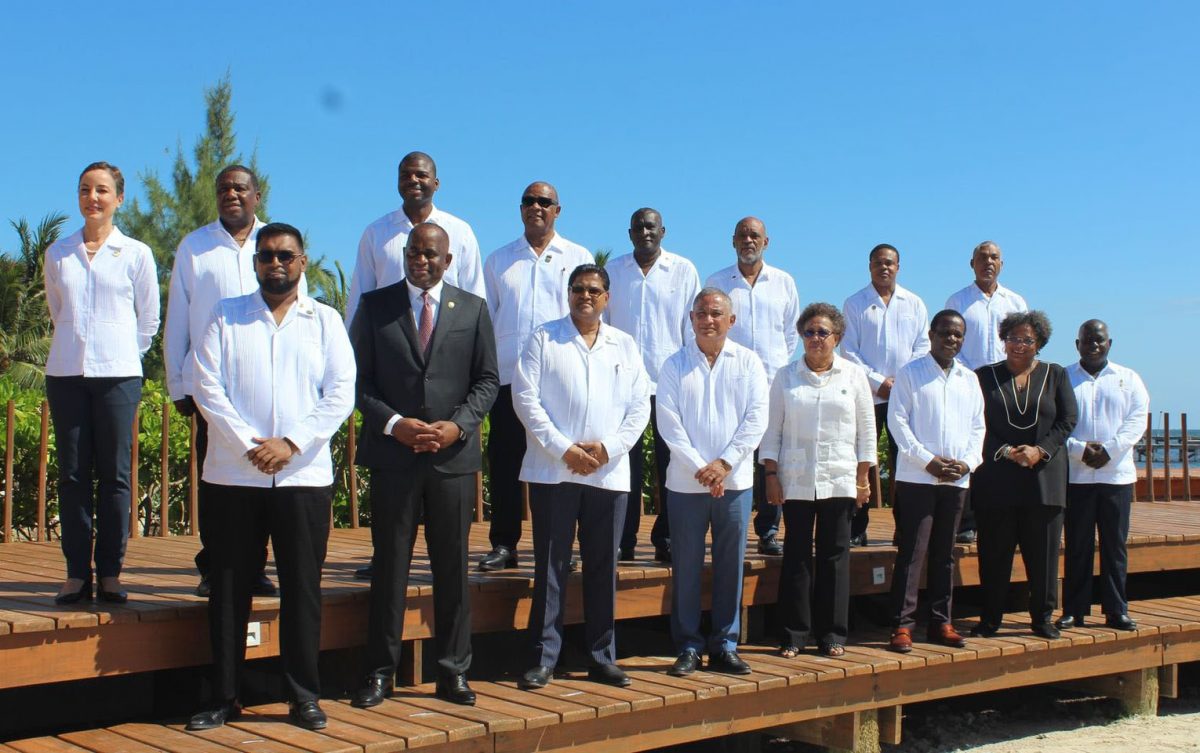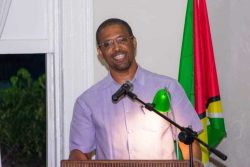With CARICOM long accused of moving too slowly in implementing the Single Market and Economy (CSME), regional leaders have now agreed to modify the way decisions are taken in an effort to be more proactive.
At the recently concluded 33rd Intersessional Meeting of The Conference of Heads of Government, CARICOM leaders agreed that implementation of the CSME is the region’s best option for responding to the current development challenges and for building a more resilient community. According to a statement issued at the end of the 2-day meeting, the leaders also agreed that immediate urgent action on CSME implementation was imperative.
“In that regard, they endorsed the Action Plan for an Effective CSME and proposals for immediate action involving the Organs of the Community, Cabinets and Ministries of Member States, stakeholders, particularly the private sector, and the CARICOM Secretariat to hasten implementation.
“Heads of Government adopted and opened for signature the Protocol to Amend the Revised Treaty of Chaguaramas Establishing the Caribbean Community including the CARICOM Single Market and Economy to allow Enhanced Cooperation among Member States and to address Related Issues,” Heads of Government said in the Communique issued at the conclusion of the summit.
The leaders agreed that a review of the governance systems within the Caribbean community is imperative if they are to have more effective decision making processes and follow up on CARICOM’s agenda. In that regard, they agreed that Suriname’s President Chandrikapersad Santokhi would assume the responsibility for the Industrial Policy in the CARICOM Quasi-cabinet of Heads of Government.
CARICOM’s revised Treaty of Chaguaramas speaks to unanimity in its decision-making but the heads are now seeking to change that. In 2018, the leaders signed the St Ann’s Declaration on the CSME which speaks to majority-agreed decision making practices.
As part of the declaration, leaders committed to taking action at the national level to advance the regional integration agenda; to ensure the equitable distribution among the peoples of the Community of the gains realised through the regional integration process; and agree on a formalised, structured mechanism to facilitate dialogue between the Councils of the Community and the private sector and labour, among other areas of cooperation.
The St Ann’s Declaration also saw leaders agreeing to examine the re-introduction of the single domestic space for passengers in the Region, and for steps to be taken to deepen cooperation and collaboration between the Secretariats of CARICOM and the OECS to avoid duplication and maximise the utility of scarce resources.
At a press conference on Wednesday, Barbados Prime Minister Mia Mottley referenced the Declaration and the need for the full implementation of the CSME.
“I’m happy to report that not only did we agree on the framework for enhanced cooperation, but the protocol amending the treaty was opened this afternoon and a number of us signed…this will mean that where, I think the threshold is three countries raise an issue, once we can reach an agreement of two-thirds of the community that we can go ahead without unanimity.
“So that enhanced cooperation is critical towards us being able to progress within the community without necessarily requiring everybody to move at the same pace. And this is a recognition that there are individual circumstances and a community of sovereign nations that might not allow everybody to move at the same pace,” Mottley said.
The CARICOM Communique also informed that the leaders requested the urgent requirement of a strategy for the development of the energy sector including the CARICOM Energy Policy. The leaders also mandated the Guyana-headquartered CARICOM Secretariat to undertake further work on identifying 10 major non-food items imported into the Region for which there is production capacity, potential and significant demand in an effort to market as an investment priority. Heads of Government agreed that early decision-making, as well as cross-sectoral inter-agency regional and national actions, were needed to support the economic recovery and transformation of CARICOM member states. In furtherance of that, a decision was taken to resuscitate the CARICOM Economic Recovery and Transformation (CERT) Working Committee headed by Mottley. The Committee’s objective is to serve as a clearinghouse for the many recommendations being tabled and to guide the economic recovery and transformation process in CARICOM.
They also agreed that the Working Committee would be open-ended, with core membership comprised of The Bahamas, Barbados, Belize, Grenada, Guyana, Jamaica, Trinidad and Tobago, and the Governor of the Eastern Caribbean Central Bank (ECCB); and would be coordinated by the Secretary-General.
The President of the Caribbean Development Bank, the Chief Executive Officer of the CARICOM Development Fund and the Chair of the CARICOM Commission on the Economy have been added as members of the Committee.









